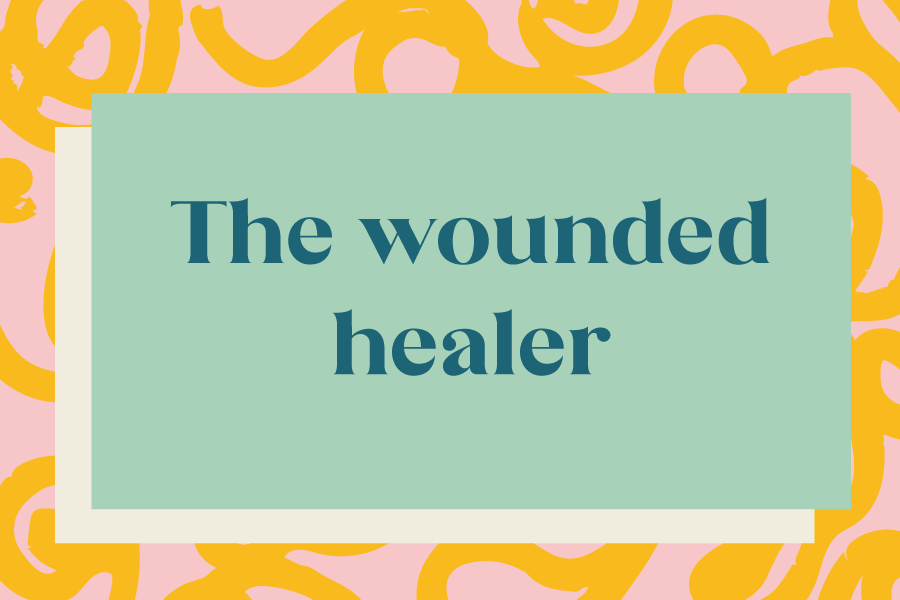
This post is written by Karen Tang, a PhD Student in Clinical Psychology at Dalhousie University, in Nova Scotia, Canada. Her research examines behavioural addiction (e.g. video gaming) and how these disorders correlate with mental health. When she is not being a busy graduate student, Karen is advocating for mental health and diversity in higher education. To find out more about Karen and her work, follow her on Twitter.
Lived experience is defined as “personal knowledge about the world gained through direct, first-hand involvement in everyday events rather than through representations constructed by other people.” We all have unique lived experiences that shape our identities and perspectives, including but not limited to personal experiences with mental health.
When it comes to mental health, one thing to be conscious of is that everyone will have ‘ups and downs,’ just as they have episodes of good or bad physical health. In your childhood, you might have broken a bone (a down), then as a teenager you might have participated in school sports teams and was in the best physical health possible (an up), and then later on you might have caught the flu (a down). This pattern is not distinct to physical health; our mental health journeys work in similar ways. For example, as an adolescent, you might have had bouts of low mood (a down), but then you may have found yourself in postsecondary where you flourished and thrived in this new environment (an up).
Those who can accept their woundedness, their human-ness, are often the people that possess the skills and experiences to go on to effectively and compassionately heal others. These people are so-called ‘wounded healers.’
The wounded healer is not unique to the psychology profession, it is prevalent across all caring professions, including individuals working in medicine, social work, nursing, psychiatry, and even the clergy. It might have been the lived experience of living in the foster system that compels the social worker to pursue their career, or a family member’s diagnosis that drives an individual to pursue medicine. It is this personal experience with mental health, that drives the passion of many psychologists to pursue the work they do; it certainly did for me.
As a psychologist-in-training, I experienced my first panic attack in my first year of graduate school. That feeling of being unable to breathe, as if an anvil was sitting on my chest, is something that I still relive sometimes. That instinctive urge to gasp for air like a fish out of water? The tears cascading uncontrollably down my face? Not one of my favorite moments in life. And of course with my luck, it had to happen in the middle of class in front of my peers and professor. An aspiring Clinical Psychologist, I honestly thought that meant I had no place in this profession. I thought that I had been selected for this program in error, that I was lesser than my high-achieving colleagues.
It wasn’t until class one day, where the archetype of the ‘wounded healer’ was brought up. My interest was immediately piqued, and I dove headfirst into what I knew best: the literature. As it turns out, speaking to psychology students across the board about the concept of the ‘wounded healer’ allowed me to learn a few things.
You are not alone and are most definitely not the only person who is a wounded healer. As I engaged in conversations with psychology trainees, from those just starting their graduate careers to those who were nearing their licensing as a psychologist, the more I felt less alone. Research has found that 61% of psychologists have suffered at least one episode of clinical depression, and an estimated 50-85% of mental health providers have lived experience with mental health concerns of some kind (1, 2, 3). Fortunately, research suggests that psychologists who have dealt with their own mental health problems in the past, may be better at their job; research has found that professionals with lived experience tend to display less stigma towards clients seeking mental health treatment. It appears that wounded healers may be uniquely qualified, are more compassionate, and have a deeper understanding of what their patients are experiencing than their colleagues that do not have lived experience with mental health issues. Although poor mental health is not unusual, unfortunately, it is uncommon to see mental health professionals be open about their prior experiences.

Mental health and well-being remain a lifelong journey, and just like any personal journey, it is unique to each of us. Our experiences may even shape our passions and ambitions, allowing us to become more compassionate healers; I certainly hope this is the case for me. I am now heading into my second year of study specializing in the field of addiction, with a particular interest in its association with mental health outcomes.


